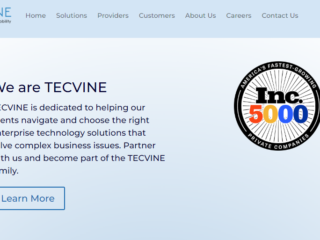With the increasing focus on data privacy and protection, businesses operating in the European Union (EU) must comply with the General Data Protection Regulation (GDPR). Magento 2, a leading e-commerce platform, provides several tools and extensions to help merchants ensure compliance. This article will guide you through the essential steps to make your Magento 2 store GDPR compliant using various features and extensions.
Understanding GDPR Compliance in Magento 2
GDPR mandates businesses to be transparent about data collection, usage, and storage practices. It also gives users the right to access, modify, and delete their data. To ensure your Magento 2 store meets these requirements, you need to implement specific features and extensions.
Key Steps to Achieve GDPR Compliance1. Implement a Comprehensive Privacy Policy
A clear and comprehensive Magento 2 privacy policy is the foundation of GDPR compliance. Your privacy policy should detail what data is collected, how it is used, and the rights users have regarding their data.
2. Use a Magento GDPR Compliant Extension
Several Magento GDPR compliant extensions are available to streamline compliance. These extensions offer features like data access, deletion requests, and consent management, making it easier to adhere to GDPR regulations.
3. Display a Cookie Notice
Cookies are a common way to collect user data, and under GDPR, users must be informed and give consent before cookies are used. A Magento cookie notice is a crucial tool for this. It informs users about the cookies used on your site and provides them with the option to accept or decline.
4. Install a Magento 2 Cookie Consent Extension
A Magento 2 cookie consent extension helps manage cookie consent efficiently. This extension ensures that users’ preferences are recorded and respected, which is a core requirement of the GDPR. It also helps in displaying a Magento 2 EU cookie law compliant notice to visitors from the EU.
5. Ensure Data Accessibility and Portability
Under GDPR, users have the right to access their data and request its deletion or modification. A Magento data privacy extension can facilitate these requests. By integrating tools that allow users to access their data and make requests directly, you can ensure that your store complies with these regulations.
6. Update Your Magento 2 Store with Accessibility Features
While not directly a GDPR requirement, ensuring your store is accessible to all users, including those with disabilities, aligns with the broader goals of inclusivity and fairness. A Magento accessibility plugin can help make your site more accessible, ensuring all users can interact with your privacy features.
Benefits of Ensuring GDPR ComplianceEnhanced User Trust
By transparently handling user data and respecting their privacy, you build trust with your customers. A GDPR-compliant store reassures users that their information is safe and that their rights are respected.
Avoidance of Penalties
Non-compliance with GDPR can result in significant fines and legal consequences. Implementing the necessary tools and practices helps you avoid these penalties and operate within the law.
Improved Data Management
GDPR compliance often leads to better data management practices. By keeping your data organized and ensuring that only necessary data is collected and stored, you can improve the overall efficiency of your business operations.
Tools to Help with GDPR Compliance in Magento 2
- Magento GDPR Extensions: These provide features for managing user data requests, consent logs, and privacy policy acknowledgments.
- Magento Cookie Notice and Consent Extensions: These ensure that users are informed about cookies and give their consent before any data is collected.
- Magento Accessibility Plugin: Enhances the usability of your site, ensuring that privacy-related features are accessible to all users.
Conclusion
Ensuring GDPR compliance in your Magento 2 store is essential for protecting user data and maintaining trust. By implementing a robust privacy policy, using GDPR-compliant extensions, and displaying clear cookie notices, you can align your store with GDPR requirements. These steps not only help in legal compliance but also enhance user experience and trust in your brand.
Read more WellHealthOrganic:How to build muscle know tips to increase muscles in 2025?










